Societies under German Occupation
Experiences and Everyday Life in World War II
The international research and editorial project Societies under German Occupation – Experiences and Everyday Life in World War II brings together leading academic institutions and renowned scholars from 15 European countries, in order to investigate the everyday experiences of local populations throughout Europe who lived under German occupation during the Second World War.
The project Societies under German Occupation – Experiences and Everyday Life in World War II is led by Professor Tatjana Tönsmeyer (University of Wuppertal) and Professor Peter Haslinger (Herder Institute for Historical Research on East Central Europe – Institute of the Leibniz Association/University of Gießen).
Queue of „Postimees“-customers in Estonia in spring 1943, Bildarchiv Herder-Institut Inv.nr. 156159
News
Societies under German Occupation –
Experiences and Everyday Life in World War II
Project Description
Societies under German Occupation –
Experiences and Everyday Life in World War II
The history of the Second World War has thus far been written predominantly as a history of Nazi aggression and its perpetrators. The Holocaust and the crimes of the Wehrmacht, as well as resistance movements in the occupied countries have been the focus of historical research. In contrast, there is a notable dearth of research on and documentation of the situation and perspectives of local populations living in German-occupied Europe.
The international research and editorial project ‘Societies under German Occupation – Experiences and Everyday Life in World War II’ seeks to address this deficit. The aim of the project is to compile a collection of sources, in printed and digital form, which documents the diverse and complex everyday circumstances, experiences and survival strategies of ordinary people in the states and territories occupied by the Wehrmacht during the war.
The carefully selected sources will demonstrate different perspectives and regional specificities of daily life for members of the occupied societies, which, at the height of German expansion, reached from Norway to Greece and from France into the Soviet Union, and encompassed at least 200 million people.
The edition will thus offer a unique transnational perspective on a period and topic which remains highly relevant for the politics of history and memory throughout Europe, but which has so far been examined primarily within national frameworks. In doing so, it also seeks to give new impulses for the investigation of questions about everyday life during the occupation which have hitherto remained remarkably underexplored.
The first phase of the project which has served as a pilot study has been funded by the Leibniz Association.
Topic Areas
The edition focuses of Societies under German Occupation, in particular, on four main topic areas: ‘Supply and Shortage’, ‘Rule and Its Institutions’, ‘Labour and Exploitation’ and ‘Violence and Persecution’. Together, these thematic areas illuminate central experiences which were integral to everyday life under the conditions of occupation.
Key aspects include, for example, how disruptions to supply resulted in severe shortages of food – often leading to hunger and starvation – and scarcity of other commodities e.g. clothing, fuel and hygiene products, and the ways in which populations experienced particular forms of rule and authority in dealing with local institutions which served as intermediaries between occupiers and the occupied. Experiences of work and employment conditions which were increasingly obligatory, regimented and exploitative in nature, through to actual forced labour and demands on agricultural workers, as well as practices of dissent are also elucidated in the sources. Finally, the edition will demonstrate how many everyday contexts were accompanied and often defined by experiences of existential or humiliating and degrading acts of aggression, as well as the exposure to and witnessing of mass violence, killings, and deportations.
The pilot study focuses on the first major topic area of ‘Supply and Shortage’ and lays the groundwork for the further designated topics. Guidelines for the identification, gathering and selection of sources, as well as for the transcription, annotation and translation of the selected documents, have also been developed and tested during the pilot study.
Sources
The selected sources date from the occupation years, in some cases also from immediately before and after. A wide variety of genres will be presented: for example, ego-documents such as diaries and letters, as well as official sources (e.g. regulations or announcements), police interrogations, court records and petitions to authorities, including denunciations. Other source groups include the occupation press, papers from underground associations and trial documentation from the immediate post-occupation period. Rich and previously unknown material from regional archives throughout Europe will have a particularly prominent place in the edition.
A selection of documents, for the project Societies under German Occupation – Experiences and Everyday Life in World War II, is presented here as a preview of the kind of material that comprises the edition:
International Network
Societies under German Occupation –
Experiences and Everyday Life in World War II
The project Societies under German Occupation – Experiences and Everyday Life in World War II is led by Professor Tatjana Tönsmeyer (University of Wuppertal) and Professor Peter Haslinger (Herder Institute for Historical Research on East Central Europe – Institute of the Leibniz Association/University of Gießen).
They are joined as General Editors by Professor Włodzimierz Borodziej (University of Warsaw), Dr. Stefan Martens (German Historical Institute Paris) and Professor Irina Sherbakova (MEMORIAL Moscow).
The wider international network comprises the following experts who supervise the research on the corresponding countries and regions:
Project Leaders
Prof. Dr.
Tatjana Tönsmeyer
University of Wuppertal · supervisor for Bohemia/Moravia (Protectorate) | Slovakia
Prof. Dr.
Peter Haslinger
Herder Institute Marburg/University of Gießen · supervisor for Hungary
As general editors they are joined by
Prof. Dr.
Włodzimierz Borodziej (1956-2021)
University of Warsaw ·
Poland
Dr.
Stefan Martens
German Historical
Institute Paris ·
supervisor for Channel Islands
Dr.
Irina Scherbakova
Moscow MEMORIAL ·
supervisor for Russia
Staff
Dr.
Agnes Laba
University of Wuppertal ·
Germany
M.Sc.
Francis Ipgrave
University of Wuppertal ·
Germany
International network
Dr.
Kusma Kozak
Belarusian State
University Minsk ·
supervisor for Belarus
Dr.
Dirk Luyten
Centre for Historical Research and Documentation on War and Contemporary Society Bruxelles/CEGESOMA ·
Supervisor for Belgium
Prof. Dr.
Karl Christian Lammers
University of Copenhagen ·
supervisor for Denmark
Prof. Dr.
Anu-Mai Köll
Södertörn University Sweden ·
supervisor for Estonia
Prof. Dr.
Olivier Wieviorka
Ecole Normale
Supérieure de Cachan ·
supervisor for France
Prof. Dr.
Gustavo Corni
University of Trento ·
Supervisor for Italy
Dr.
Darius Staliunas
Lithuanian Institute of History Vilnius ·
supervisor for Lithuania
Prof. Dr.
Benoît Majerus
University of Luxembourg ·
supervisor for Luxembourg
Dr.
René Kok
Institute for War, Holocaust- and Genocide Studies Amsterdam/NIOD·
supervisor for Netherlands
Prof. Dr.
Guri Hjeltnes
Center for Studies of Holocaust and Religious Minorities Oslo ·
supervisor for Norway
Prof. Dr. hab.
Jerzy Kochanowski
University of Warsaw ·
supervisor for Poland
Dr.
Violetta Hionidou
Newcastle University ·
supervisor for Greece
Prof. Dr.
Gelinada Grinchenko
Karazin Kharki National University ·
supervisor for Ukraine
Prof. Dr.
Milan Ristović
University of Belgrad ·
supervisor for former Yugoslavia
Former network members
Prof. Dr.
Tanja Penter
University of Heidelberg ·
former supervisor for Ukraine
Prof. Dr.
Hagen Fleischer
University of Athens ·
former supervisor for Greece
Hybrid Edition
Societies under German Occupation –
Experiences and Everyday Life in World War II
In order to cater for a diverse international audience, the edition will be published in hybrid form. This combines the advantages of a multiple-volume, printed publication in English with a digital project portal which presents the sources both in English and the original languages. The sources are transcribed, annotated and translated according to project-specific guidelines which ensure the highest scholarly standards.
The digital edition will include a number of facsimiles, in order to convey the visual and material qualities of selected sources, and advanced interactive search functions. The project portal will also offer additional, specifically developed features for teaching purposes. Preparations for the online edition are being made with the Trier Center for Digital Humanities which will be the main project partner for the digital implementation of the edition, and with the support of the Interdisciplinary Center for Edition and Documentation Studies (University of Wuppertal) and the Center for Media and Interactivity (University of Gießen).
Rural population of the Generalgouvernement receiving fabrics with special rationing cards of the “Ernteerfassungsaktion im Generalgouvernement” which the German occupying powers introduced as rewards for the submission of agricultural products, 28.XI.1942, Collection CEGESOMA
Sample Sources
Societies under German Occupation –
Experiences and Everyday Life in World War II
The following sources offer an insight into the diverse genres, languages and visual qualities of the documents presented in the edition Societies under German Occupation – Experiences and Everyday Life in World War II. A number of facsimiles like these will be included in the digital edition. Transcriptions of the sources selected for the edition are produced on the basis of the digital copies obtained from the archives; the resulting transcriptions are then annotated and translated with reference to the original facsimiles.
Report on the “Situation and tasks of agriculture”, by. J. Andersons, head of the Latvian agriculture administration, [1942]
Bundesarchiv Berlin (Federal Archive Berlin); R-92/477.
Writing of the command of Kaunas economy of August 2, 1941 to the commissar of the Kaunas city circuit regarding setting of ration to the civilians
Lietuvos centrinis valstybės Archyvas (Lithuanian Central State Archives); LCVA Fond R-615 Inv. 2 File 2, p. 11r).
Head-Office of Agiculture (Landwirtschaftliche Zentralstelle) in Cracow
Archiwum Akt Nowych w Warszawie (The Central Archives of Modern Records); AAN, LZ, 467, p. 11.
Report of the arrest on the Belgrade railway station of the peasant and his customer during the illegal sale of two piglets. Belgrade, 27 November 1941
Arhiv Srbije (Archives of Serbia); AS-G-6, F-37, nr. 8795.
- KdS Litauen, Status report August 1943| (1/4)
- KdS Litauen, Status report August 1943| (2/4)
- KdS Litauen, Status report August 1943| (3/4)
- KdS Litauen, Status report August 1943| (4/4)
KdS Litauen, Status report August 1943
Lietuvos Centrinis Valstybės Archyvas(Lithuanian Central State Archives); R 1399-1-61, Bl. 166-168.
- The instruction of department of prices in the administration of Generalgouvernement about the fight with black market| (1/9)
- The instruction of department of prices in the administration of Generalgouvernement about the fight with black market| (2/9)
- The instruction of department of prices in the administration of Generalgouvernement about the fight with black market| (3/9)
- The instruction of department of prices in the administration of Generalgouvernement about the fight with black market| (4/9)
- The instruction of department of prices in the administration of Generalgouvernement about the fight with black market| (5/9)
- The instruction of department of prices in the administration of Generalgouvernement about the fight with black market| (6/9)
- The instruction of department of prices in the administration of Generalgouvernement about the fight with black market| (7/9)
- The instruction of department of prices in the administration of Generalgouvernement about the fight with black market| (8/9)
- The instruction of department of prices in the administration of Generalgouvernement about the fight with black market| (9/9)
The instruction of department of prices in the administration of Generalgouvernement about the fight with black market
Derzhavhyi arkhiv L’vivs’koi oblasti (DALO) (State Archive of Lvov Region); GALO, f. R.35, op 2, d.109, l. 10-11.

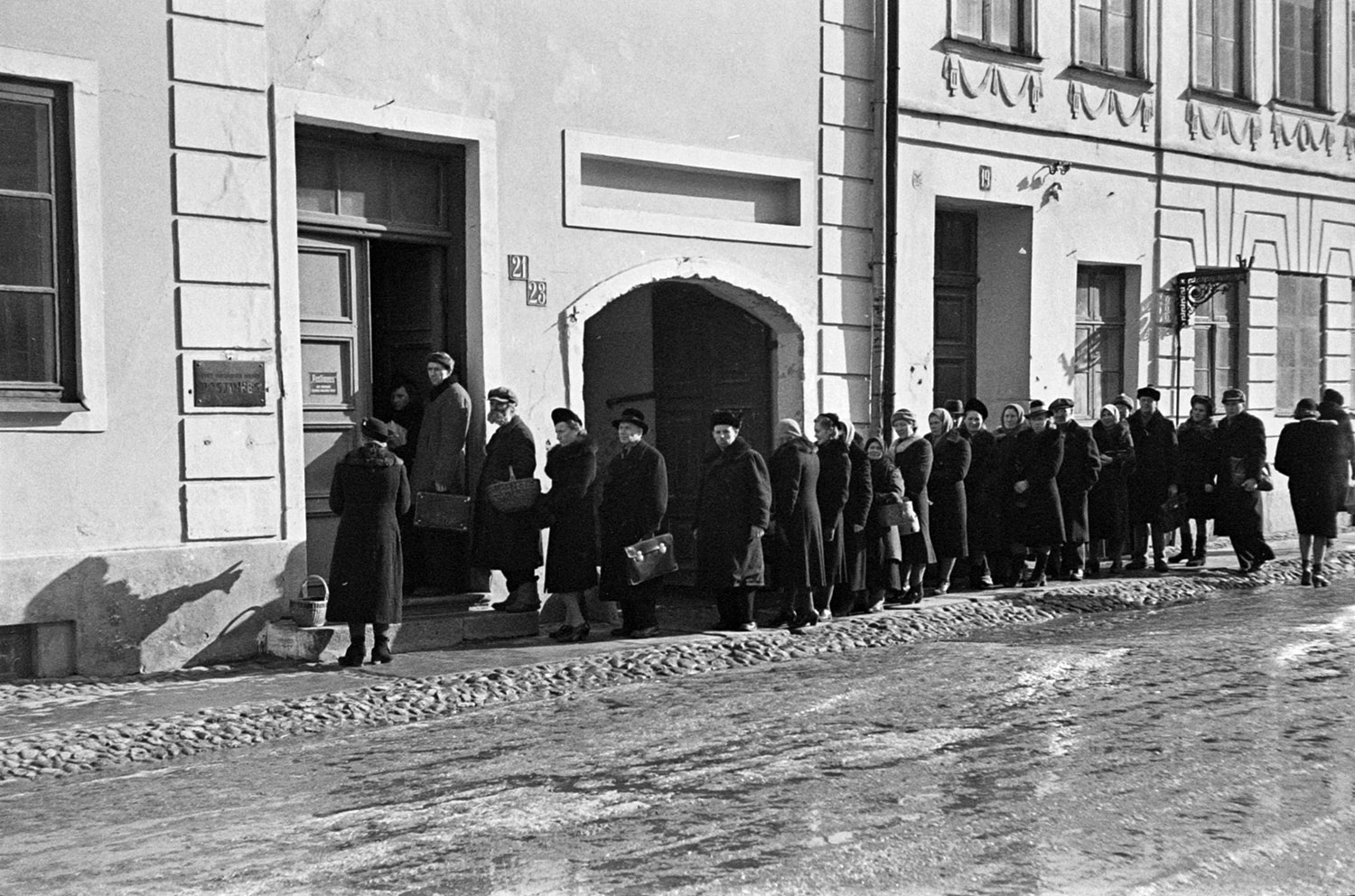


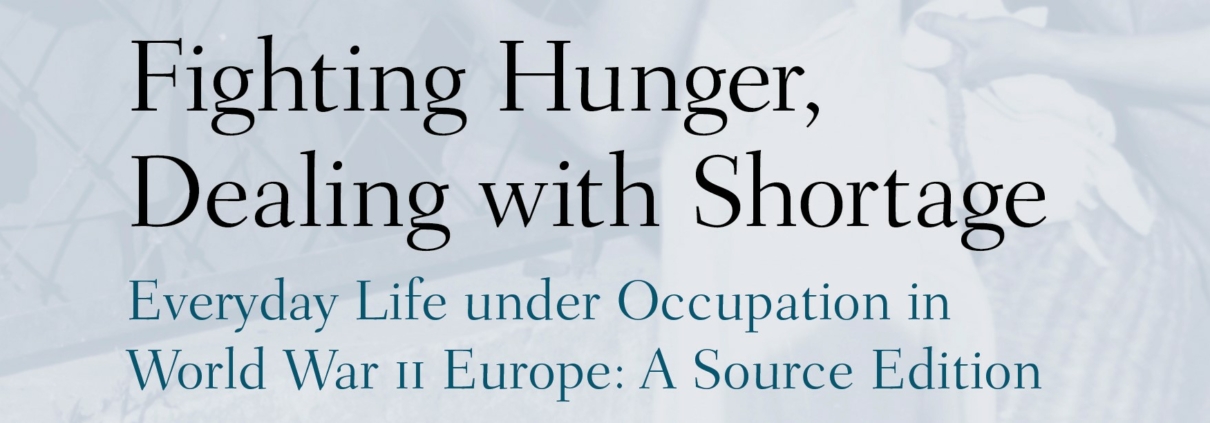
 Palgrave Macmillan
Palgrave Macmillan Herder-Institut, Marburg. Bildarchiv.
Herder-Institut, Marburg. Bildarchiv.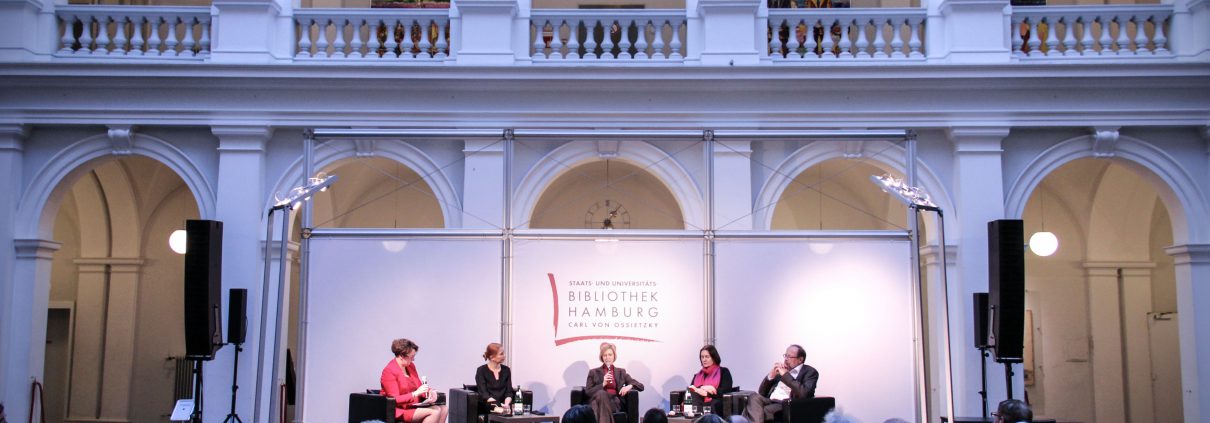
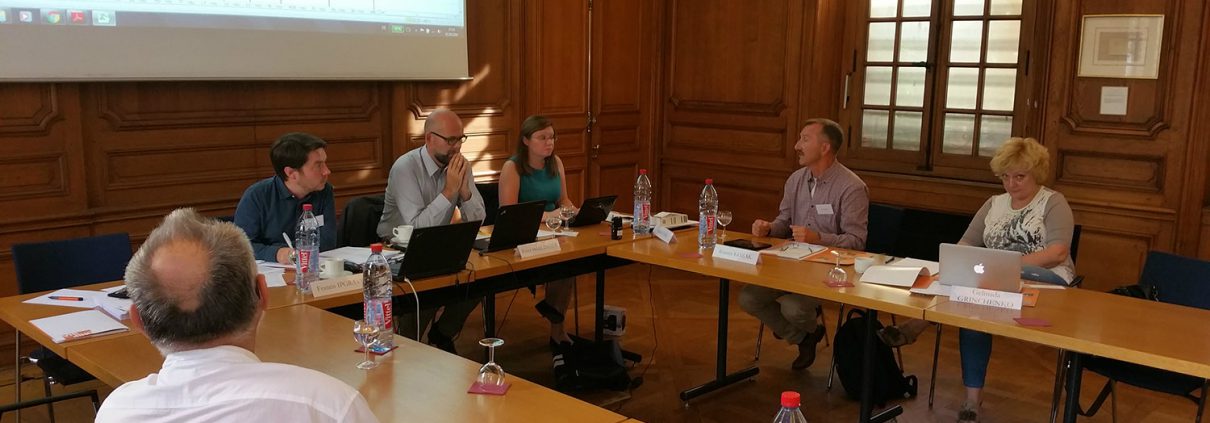
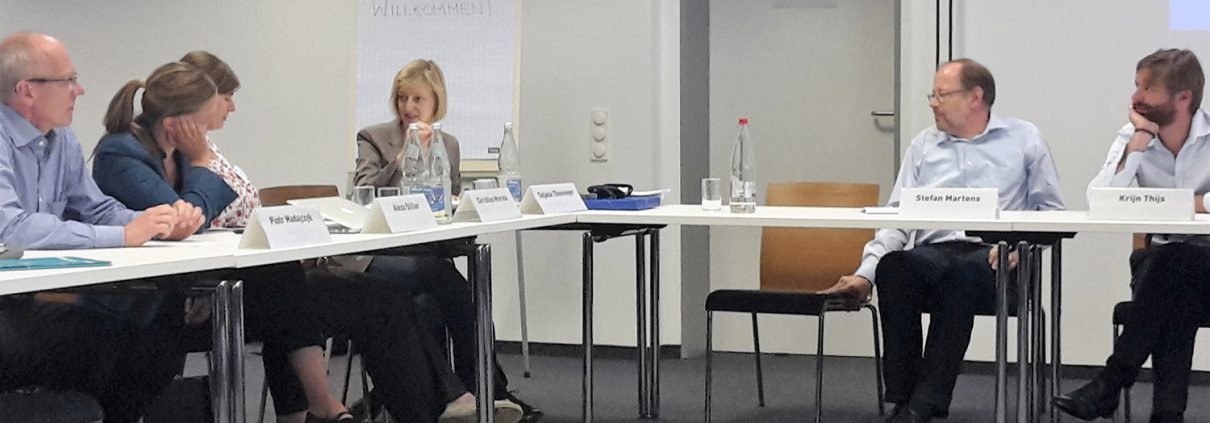







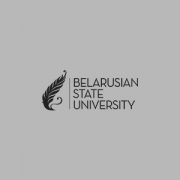


















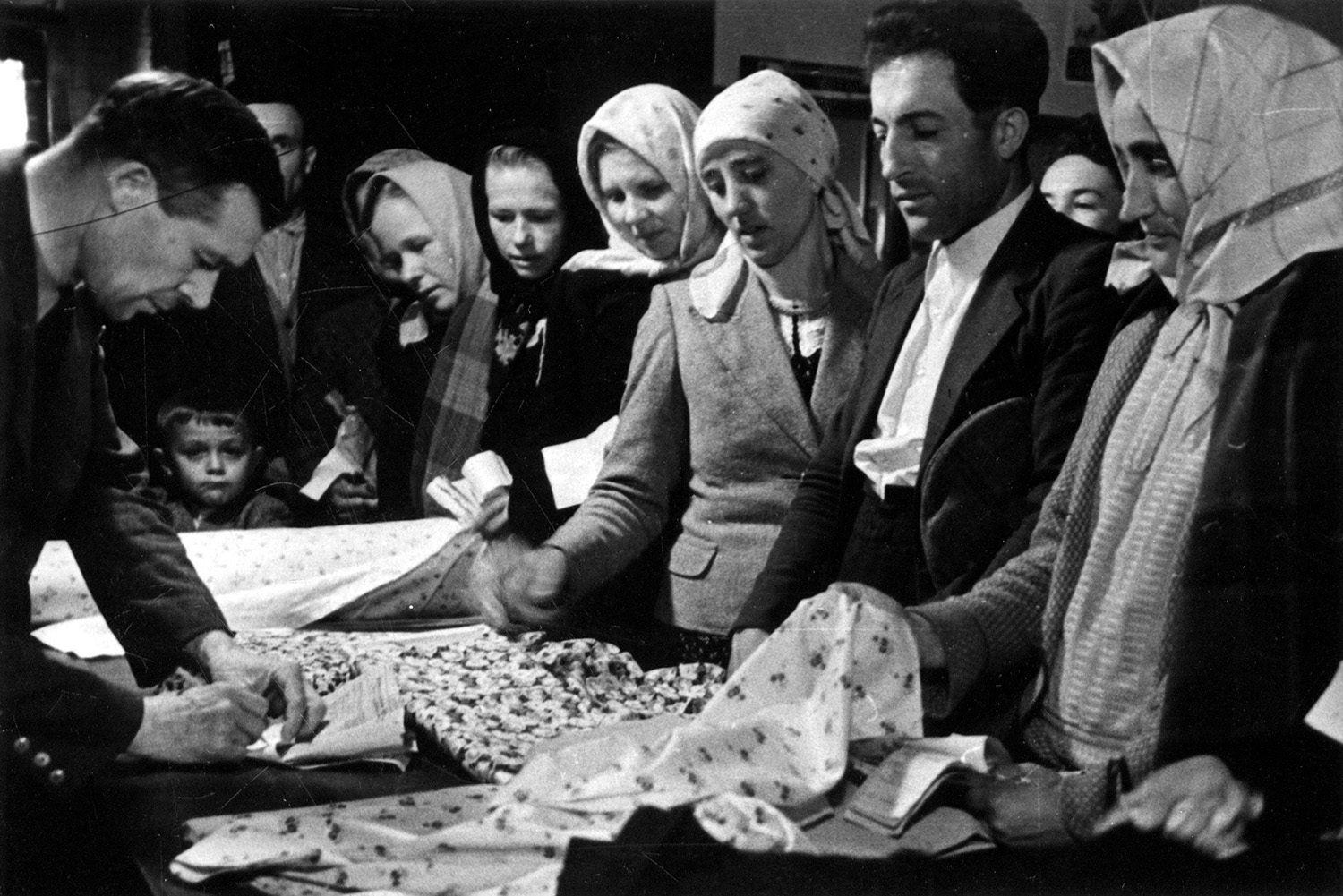
![Report on the “Situation and tasks of agriculture”, by. J. Andersons, head of the Latvian agriculture administration, [1942] | (1/1) Report on the “Situation and tasks of agriculture”, by. J. Andersons, head of the Latvian agriculture administration, [1942]](http://www.societies-under-german-occupation.com/wp-content/uploads/2016/08/Report-on-the-“Situation-and-tasks-of-agriculture”-by.-J.-Andersons-head-of-the-Latvian-agriculture-administration-1942-80x80.jpg)

















